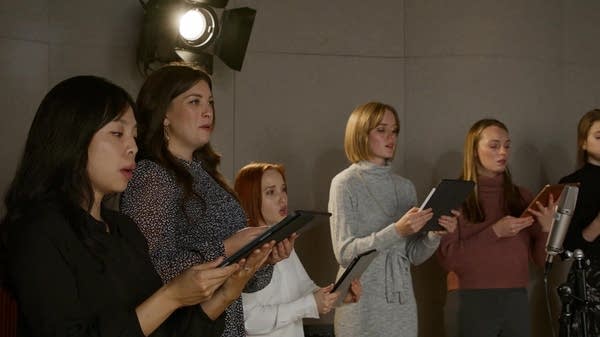Berthold Auerbach (1812-1882) wrote that "Music washes away from the soul the dust of everyday life." I am not sure that many of us would refer to our everyday lives as "dust," but otherwise, these words capture exactly what classical music, and in particular the requiem by Giuseppe Verdi, can do.
I'm a violist with the Wayzata Symphony Orchestra, and with conductor Marlene Pauley, we've been rehearsing every phrase of the requiem so that the complexities of the score are woven tightly together like a masterful tapestry. This coming week, members of two Twin Cities choruses and four vocal soloists will gather around us for several final rehearsals. We have been told of the singers' excellent talent and preparation, and so our anticipation for our concerts grows!
Last week, the members of our brass section blew me away. Even if he was tooting his own horn, one of the trombonists accurately told me that the brass are "really rockin' this piece!" Verdi has composed some of the "richest brass chords ever written to stir your soul." Are these notes rich? Soul-stirring? When the members of the entire brass section play as strongly and mightily as they can, we all may just need to hold on to our seats...and our souls. We may even experience what one of our trumpet players calls an "internal buzz." She also likens the music to the feeling of ocean waves washing over our heads. Yes, I think a lot more than just dust is going to get washed away from our everyday lives.
On a personal note, as I sit in the orchestra, my every sense and every neuron is focused on the music. It sounds impossible, but it is as though I am alone with my creator and also at one with everyone around me. We are no longer individuals but all part of one musical instrument. For a short time, there is only music. Many refer to this as a journey, and we hope to gently allow our audience to join us on this shared but deeply personal journey. As musicians, we want our audience to feel the "buzz," to be stirred.
This week, the orchestra musicians have had only one dreaded glare from Maestra Pauley: it was for the string players' attempts at some extremely challenging fast passages. As I sat in the string section, I'm pretty sure that our conductor had her "stink-eye" directed straight at me. Likely, we all shared that impression, however. It occurs to me that one plausible interpretation of the conductor's stink-eye is: "Please go home and practice these fast and tricky sections for at least eight hours so you can play them beautifully!"
Maestra Pauley must have great faith in our devotion and our potential to master these musical wind sprints.
So how do we handle these challenges? I do my musical work-outs at home with my trusty electronic metronome at my side as my coach. My metronome settings have gone from 30 or 40 beats a minute on reading the music for the first time, to 60 after one week of hard practice, and to 75 after two weeks of practice. It is much harder than it sounds. Ready or not, the orchestra will be taking these passages at full speeds of 80 to 88 beats per minute.
Since I am not alone in having to put hours of athletic-like training into these fast sections, you may ask, why do we bother? We practice these notes by the hour because we honor the music, our fellow musicians, and each person in our audience. Will it be worth it? Please let me know after the concert. Did you almost feel the wind in your hair during the fast and furious parts? Was the dust of everyday life washed from your soul?
Next Friday, I'll write about how spectacular will it be when we finally rehearse with the choirs and soloists — and about what exactly goes through the minds of orchestra musicians just as a concert is about to begin. We'll be performing the Verdi on Feb. 22 at Orchestra Hall in Minneapolis, and on March 1 at the Wayzata Community Church. For details about these free concerts (donations gratefully accepted), see our website.
Dawn Anderson, MD, is a pediatrician, photographer-videographer, board member, and violist with the Wayzata Symphony Orchestra. She's sharing her story on Classical MPR's website as the orchestra prepares to perform Verdi's Requiem. Watch for more stories from Dawn in coming weeks.
Interested in writing about classical music for Classical MPR? Have a story about classical music to share? We want to hear from you!
Love the music?
Show your support by making a gift to YourClassical.
Each day, we’re here for you with thoughtful streams that set the tone for your day – not to mention the stories and programs that inspire you to new discovery and help you explore the music you love.
YourClassical is available for free, because we are listener-supported public media. Take a moment to make your gift today.











